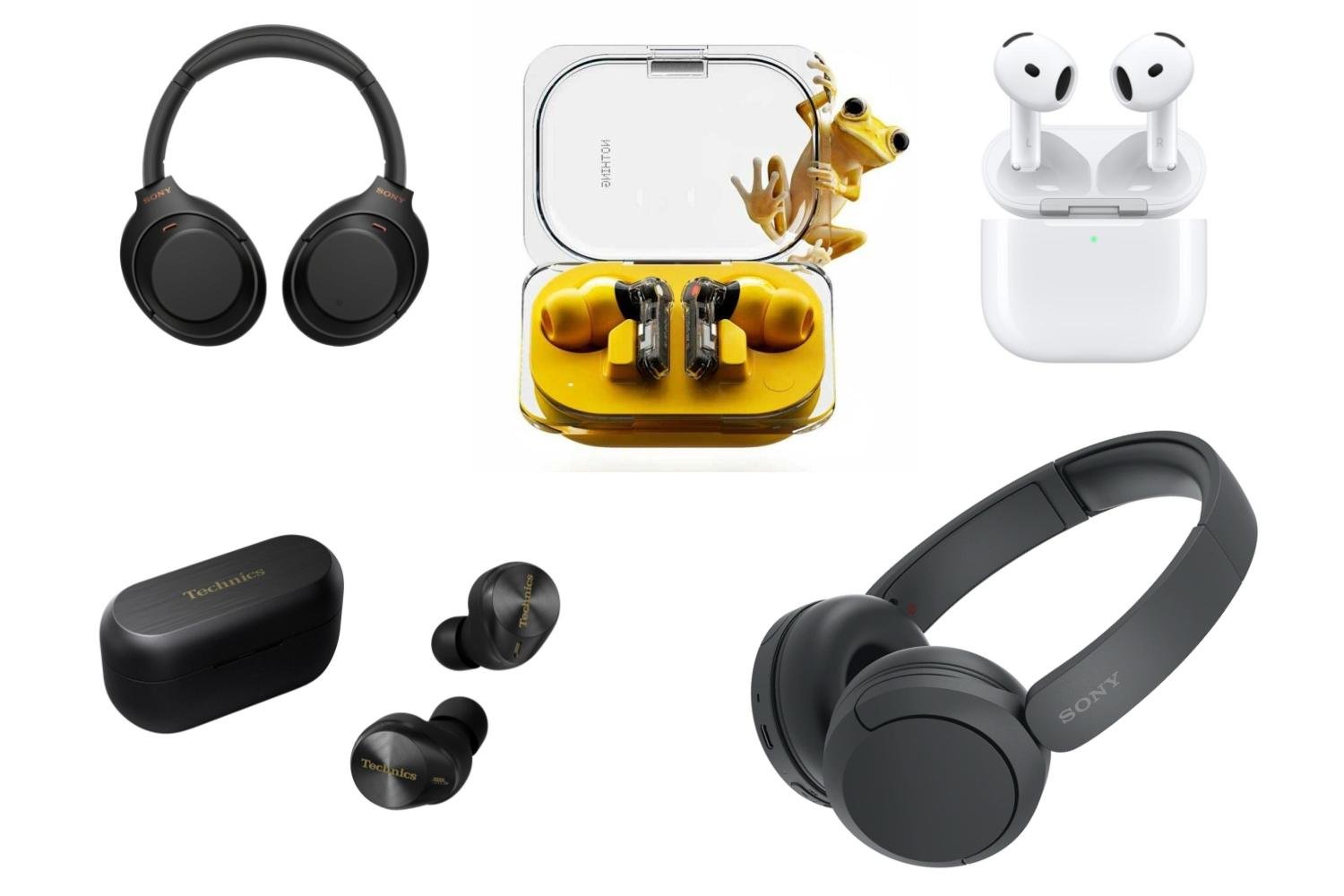Imagine you’re a fish who’s given up on the idea that a fishing net is escapable. You’re not even swimming for freedom anymore—you’ve accepted the net as an inevitable part of life.
Now, the ocean itself has been replaced by one giant, government-controlled aquarium, and you’re not just a fish but also a fish with an ID tag glued to your fin. That’s what living in today’s tightly regulated digital ecosystems feels like. At least that is only what the Chinese would feel.
This is a status posted by Vietnamese Government Portal. It’s a stark example of how governments, like in Vietnam, are redefining the boundaries of what we can call the “digital public square.”
The status outlines a new regulation from Decree 147/2024, stating that only verified accounts—those authenticated with a phone number or personal ID—are allowed to post, comment, livestream, or share information on social media. In other words, if you want to voice your opinion online, you better flash your ID first.
As a Vietnamese person myself, I was terrified to read this.
On the surface, Decree 147/2024 might seem like a practical way to cut down on online trolls, disinformation, and anonymous harassment.
Who wouldn’t want to make the internet a more civil place, right? But let’s not kid ourselves—this isn’t about creating a kinder, safer web. It’s about control. And when you connect the dots, the implications are chilling.
Let’s break it down. The regulation mandates that only verified accounts—those tied to your personal ID or phone number—can post, comment, livestream, or share information online. In essence, if you want to engage in digital discourse, you first need to strip away your anonymity and hand over your identity on a silver platter.
So what’s the big deal?
It’s like being told you can’t shout in the town square unless you wear a giant name tag that says, “Hello, my name is Duy. Here’s my address and phone number, in case you’d like to report me to the local authorities.”
And in places like Vietnam, where freedom of expression is already a fragile concept, this transforms online speech into a minefield.
Think about it: when governments insist on identity verification for all online activity, they’re not just protecting their citizens—they’re building a panopticon, a digital space where every keystroke is watched and every opinion can be traced back to its source.
And when people know they’re being watched, they censor themselves. No one wants to be the loudest fish in the aquarium, especially when you know the hand feeding you can take away your food—or worse.
For activists, dissidents, or even just your average citizen with a spicy take on government policy (like this very post), the consequences can be immediate and very tangible. Suddenly, speaking truth to power comes with a cost: your safety, your job, or your freedom.
The digital public square? It’s no longer a square—it’s a cage.
And here’s where the real danger lies. As these systems of control gain traction, they start to normalize the idea that privacy is an optional extra—a luxury, not a right.
If the internet is a global aquarium, this kind of policy ensures that every fish learns to swim in quiet, predictable patterns. Speak out, and you risk getting netted. Stay silent, and the water gets a little murkier every day.
Welcome to the world of digital privacy nihilism, where the assumption isn’t just that privacy is dead but that we should all stop pretending it ever mattered in the first place.
privacy nihilism in the digital age
Privacy nihilism is the belief that, in the face of overwhelming surveillance and control, fighting for personal privacy is a futile endeavor. Do you know what is it most similar to? Trying to convince your mom that your tatoos do not mean that you’re joining a gang and throwing away your life.
It’s not just resignation—it’s active acceptance. In the digital age, where tech giants monetize every click and governments track every scroll, privacy nihilism asks: Why bother resisting when you’ve already lost?
But countries like Vietnam and China? They’ve turned this concept into an art form. It’s not just about resigning to the loss of privacy—it’s about weaponizing that loss to consolidate power.
1. how digital privacy nihilism is cultural
a. china’s resigned surveillance
Let’s start with China, where privacy nihilism isn’t a choice—it’s more of a cultural adaptation, like learning to bike in a city full of potholes.
Here, the line between state oversight and daily life is so blurred that it might as well be nonexistent. You’re not shocked to see a facial recognition camera at every street corner; instead, you’re surprised if you don’t see one.
The casualness with which people accept surveillance feels almost surreal, as if a Black Mirror episode became the backdrop for an entire society.
Consider the most popular super app, WeChat.
With 1.3 billion monthly active users, it’s like the social media equivalent of having a third of the planet in its pocket. If it were a country, it’s the third-most populated countries in the world.
Every single day, 45 billion messages fly across the platform—that’s 5.2 million per second, probably half of them saying, “Did you eat yet?” Oh, and WeChat Pay?
It’s a lifestyle, with 850 million users casually paying for everything from dumplings to designer bags, while the rest of the world fumbles for cash or Venmo QR codes.
On top of that, the average user juggles over 140 mini-programs inside the app, handling everything from grocery shopping to, yes, filing for divorce. WeChat isn’t just popular—it’s a non-negotiable part of life.
WeChat’s a messaging platform, a news feed, a payments system, a grocery store, a healthcare portal, and even a booking service all rolled into one.
But everyone knows—like, really knows—that the government is plugged in. It’s a bit like having your overly protective mother listen in on all your phone calls.
Yet, instead of rebelling, people have normalized it. Want to pay your utility bills? WeChat. Need to gossip with friends? WeChat. Is the government probably eavesdropping on your conversation about your favorite dim sum spot? Almost certainly, but the surveillance is so baked into everyday routines that it’s less sinister and more background noise.
For many, it’s not about ignorance but pragmatic acceptance. People freely share their personal data on apps they know are monitored because resistance feels like shadowboxing a force too massive to change. “What’s the point?” they think, scrolling through Weibo, liking a post about local street food, all while aware that every digital move is logged.
In a way, it’s the ultimate embodiment of privacy nihilism: not defiance, but a resignation so deeply ingrained that it becomes habit.
b. Vietnam’s digital overexposure as a way of life
Let’s go back to my home country, Vietnam and you’ll find a different flavor of privacy nihilism—one tinged with youthful recklessness. Picture a country where more than half the population is under 35 and nearly everyone is perpetually online. Social media is a second skin, a full-blown ecosystem where young people share everything, often with a level of openness that would make Zuckerberg blush.
Scroll through TikTok, and you’ll stumble upon videos that overshare in almost comical ways: influencers detailing their personal histories, people live-streaming breakups, students posting location updates every time they visit a café.
The absurdity lies in the casualness of it all, like hosting a house party with every door and window wide open, fully aware that the authorities could walk in at any moment but choosing to party anyway.
The youth in Vietnam have internalized privacy nihilism, not through oppression, but through hyper-connectivity. The more they share, the more they feel seen—by peers, by the algorithm, by the faceless government apparatus that lurks in the background. The desire for validation trumps the need for privacy, making each status update a kind of public performance, a defiant yet unconscious act of surrender to the omnipresent surveillance state.
But hold up—don’t start wagging your finger at Gen Z or Gen Alpha just yet. Sure, Vietnam’s youth might overshare like their lives are one never-ending Instagram story, but let’s be real: we’re all in this mess together.
Yes I’m looking directly at you, Millenials. And Gen X, and Boomer.
Chronically online? That’s not just a Gen Z thing anymore.
While the younger generation might overshare for clout, validation, or because “it’s trending, bro,” let’s talk about the real culprits here—your mom and dad. You know, the ones who told you not to talk to strangers online but now post every vacation photo with the geotag on and answer Facebook quizzes that practically scream, “Here are my security answers!”
Think about it: when you catch a parent uploading blurry photos of their ID to random group chats, is Gen Z still the problem?
Vietnamese elders are out here treating the internet like it’s a cozy village marketplace, oblivious to the fact that the government, hackers, and data brokers are lurking in the shadows, ready to pounce like that one aunt who always “borrows” your Netflix password.
It’s chaotic. The youth know they’re being watched and perform anyway, like, “Oh, you’re spying on me? Cool. Here’s my coffee order and my breakup story while you’re at it.”
The older generation? They’re not even sure what a cookie is, oh I accept your cookies, where is it? Let alone that it’s tracking their every move. Together, they’ve created a kind of privacy nihilism so absurd, it’d be funny—if it weren’t so terrifying.
It’s funny because “not caring about digital privacy” is probably the ONLY THING that every generations can agree with Gen Z.
2. government mastery over the Internet: the aquarium analogy
Imagine that you’re a fish swimming in the vast, open ocean. You used to believe the water was boundless, free, and unpredictable.
Then one day, the ocean transforms into a giant, government-controlled aquarium, complete with artificial corals, bubble machines, and a high-tech surveillance system disguised as decorative seaweed. You’re still swimming, but there are cameras in every corner, and the illusion of freedom feels laughably thin.
Welcome to the perfect surveillance ecosystem—where privacy nihilism isn’t just a state of mind but a core feature of the landscape.
a. the great firewall: china’s information aquarium
Take China’s Great Firewall, a digital masterpiece that would make even the most paranoid tech dystopians do a slow clap. It’s not just about blocking Western social media or foreign news sites; it’s about creating a closed-loop information ecosystem where the government doesn’t just oversee what’s shared—it actively curates what’s consumed.
Want to Google “Tiananmen Square”? Nope, not happening. Google isn’t even ALLOWED here. But hey, here’s a heartwarming article about panda cubs at the Chengdu Research Base instead! It’s like living in a theme park where every ride is designed to distract you, all while security cameras track your every move.
But I’ll be honest with you. there is resistance—tiny, persistent pockets of rebellion—but it’s minuscule compared to the overwhelming force of the state and the general public’s acceptance of surveillance.
After decades of state-managed internet culture, a certain level of privacy resignation has set in. It’s not that Chinese citizens are oblivious to the surveillance; they know. They’re acutely aware of the watchful eye hovering over their phones, social media feeds, and search results.
But for most, rebellion isn’t on the agenda. Researchers suggest that China’s government has engineered the perfect recipe for digital complacency: a careful balance of strict content control and endless entertainment options.
As long as you can binge-watch Story of Yanxi Palace on iQIYI, scroll through Douyin (China’s TikTok), or order bubble tea and dumplings on Meituan, the idea of free, uncensored information feels almost… quaint. It’s not so much “resistance is futile” as it is “resistance is inconvenient.”
This privacy nihilism works in the government’s favor. By curating content and suppressing dissent, the Chinese state has created an internet where citizens swim through digital waters as if there were no escape from the aquarium walls.
Sure, some tech-savvy users hop over the firewall using VPNs, but for the average person, the aquarium has become their bubble, their entire understanding of the ocean. Why rebel when you can just binge another season of your favorite show?
But despite the seemingly insurmountable odds, resistance hasn’t vanished entirely—it’s just evolved. And its weapon of choice? Memes.
memes as guerrilla warfare
Enter Winnie the Pooh, a lovable bear turned unexpected symbol of defiance. The comparison between Xi Jinping and Pooh began as a harmless joke but quickly escalated into a viral meme protesting the government’s oppression.
The government’s attempt to censor images of the bear only fueled the fire, making Pooh an international icon of internet resistance.
Memes like these are the ultimate act of rebellion in China’s digital aquarium—they slip through the cracks, laugh in the face of censorship, and carry layers of meaning understood only by those in the know.
In China, memes have become a powerful yet subtle tool for resisting inequality and oppression in a tightly controlled digital landscape.
From the satirical “involution” and “lying flat” memes critiquing hyper-competitive work culture and societal pressures, to feminist memes calling out gender inequality and the iconic Winnie the Pooh memes mocking President Xi Jinping’s autocratic rule, these digital creations serve as coded protests.
Campaigns like “996.ICU” highlight exploitative work practices, while memes transform shared frustrations into collective resistance.
Unlike direct dissent, which is swiftly quashed, memes thrive on ambiguity. They’re slippery, layered, and difficult to pin down. A meme about a crab wearing a Mao hat might look harmless to a censor, but to those in the know, it’s a digital wink—a shared moment of resistance.
the resistance lives on
So, while the vast majority of Chinese citizens might accept—or even adapt to—the government’s grip on the internet, a small but persistent community continues to fight back in ways that are as clever as they are subversive. It’s not a revolution, but it’s a reminder that even in the most controlled environments, creativity finds a way.
Memes are proof that the aquarium walls, no matter how high, aren’t entirely impenetrable. For every adorable panda article, there’s a Winnie the Pooh meme lurking in the background, quietly reminding us that resistance, however small, is never truly extinguished.
b. Vietnam’s cybersecurity law: scrolling with the state
Now, let’s rewind back to Vietnam, where the government’s mastery over the internet feels less like a Great Firewall and more like an omnipresent lifeguard, constantly monitoring your every digital splash.
So, here’s the thing about Vietnam and internet freedom: if you think you’re gonna be able to hop online, drop a diss against the government like a rapper, good luck. Because the government’s like, “Oh, you thought you were slick?” Boom! Your account’s gone, your internet’s throttled, and now you’re having a conversation with “Uncle Security” about your choices.
Vietnam has built this wild surveillance state where even encrypted chats and anonymous forums are basically myths. The government doesn’t just watch what you do online—they probably know your favorite pho order too. And it’s not a new thing.
Since 2011, organizations like Freedom House have been screaming, “Yo, Vietnam, NOT FREE!” It’s been like that every year. You’d think by 2024, they’d loosen up, but nope.
Oh, and in 2013, when Reporters Without Borders straight-up called Vietnam a “State Enemy of the Internet.” That’s not just a bad Yelp review; it’s like being crowned the supervillain of the digital world. It’s like the internet collectively assembled, “AVENGERS” and said, “Vietnam, you’re Thanos—but instead of snapping your fingers, you’re deleting Facebook posts and throttling Wi-Fi.”
And Vietnam? They’re like, “Fine. I’ll do it myself.”
And then, in 2018, they leveled up. Vietnam passed a cybersecurity law requiring companies to store all user data in Vietnam and delete anything that smells even a little anti-state. Facebook? TikTok? They’re like, “Delete this post,” and the platforms say, “Yes, sir!”
The Cybersecurity Law, enacted in 2019, is a piece of legislation that gives authorities extensive powers to monitor, censor, and even demand data from tech companies operating in the country. On the surface, it’s framed as a way to “ensure national security,” but in reality, it’s a license to scroll through the entire internet like a nosy neighbor with an all-access pass.
Researchers and watchdog groups note that the law capitalizes on the public’s collective apathy toward digital privacy. Most people don’t think twice about oversharing their lives, making it almost too easy for the state to keep tabs on its citizens.
This digital indifference stems from the same privacy nihilism found in China, albeit with a more youthful, oversharing twist. Vietnam’s youth are so hyper-online that privacy concerns feel as distant as Y2K.
The government doesn’t need to hide behind complex algorithms or covert operations; they can openly watch as people document every detail of their lives, from food to politics, in a continuous stream of content.
It’s a state-driven surveillance ecosystem where the fish not only swim within aquarium walls but post selfies with those very walls in the background—filtered, captioned, and hashtagged for the world (and the government) to see.
3. consequences of digital privacy nihilism
When you surrender to a system that tracks you relentlessly, the consequences spiral faster than a TikTok trend. We live in a time of digital privacy nihilism, a resignation to mass surveillance so profound that it’s rewiring not just our politics but our economics and activism. It’s the new normal—an era where giving up on privacy has evolved from a reluctant compromise into a survival mechanism.
a. the spiral of digital submission
Think of it like this: once digital monitoring becomes normalized, it’s not just about watching what you post on Facebook or your WeChat history.
The entire ecosystem spirals into deeper control. Governments no longer need to exert explicit force to keep people in line; they’ve made people want to comply—or at least convinced them it’s the path of least resistance. Researchers call this the “spiral of digital submission,” a cycle where constant monitoring becomes self-reinforcing.
Psychologically, it plays out through a mix of fear and fatalism. If you know your messages, location, and financial transactions are being tracked 24/7, the odds of you organizing a protest online or joining a dissenting group plummet.
Surveillance becomes its own form of soft power, making you think twice before you even draft a post criticizing the government. It’s not just a slippery slope; it’s more like a digital black hole, pulling society’s will to resist deeper and deeper into submission.
b. limited space for digital activism
One of the most insidious consequences of this surveillance state is how it suffocates digital activism. Gone are the days of the Arab Spring optimism, where we believed social media could revolutionize democracy.
In places like China, government control over digital spaces means platforms that were once potential hubs for activism have been neutered. Privacy nihilism dampens the fight before it even begins. How do you organize resistance when you know Big Brother is not just watching but actively taking notes?
Digital spaces that could have incubated grassroots activism have been transformed into echo chambers of compliance, monitored down to the last emoji.
c. the philosophy of resignation
Is this resignation to surveillance a symptom of our digital era, or is it an adaptation for survival?
Have we willingly adapted to this reality because resistance feels futile, or is there something inherently defeatist about our generation’s relationship with technology?
This is a question that political theorists and tech ethicists are grappling with. Some argue that privacy nihilism is a modern form of fatalism, a digital-age version of throwing your hands up and accepting fate. Others see it as a calculated survival strategy, especially in authoritarian regimes where speaking out has life-altering consequences.
The reality is probably somewhere in the middle. We’ve learned to live in a surveillance society by convincing ourselves that we have no choice. It’s not that we don’t care about privacy; it’s that the cost of caring has become too high, too cumbersome, too risky.
The question isn’t just whether we can reverse this spiral—it’s whether we even want to. When privacy feels like a lost cause, it’s easier to adapt than to resist. The government aquarium has become our reality, and, like those resigned fish, we’ve made peace with the glass walls—if only because breaking through them seems impossible.
conclusion
Earlier, we began this journey with a metaphor: imagine you’re a fish who has given up on the idea of escaping the fishing net. Now imagine the ocean has become one giant, government-controlled aquarium.
It’s an image that’s not just poetic—it’s prophetic. We’re all swimming in this vast digital ocean, but more and more, it feels like the waters are being controlled by a giant filtration system, its tentacles everywhere.
Whether it’s in China with the Great Firewall, or Vietnam’s ever-tightening surveillance laws, these governments are like the aquarium owners—controlling the flow, the environment, and even the fish.
You.
Me.
Everyone.
The entire digital world is suddenly just another exhibit, neatly curated for those in charge.
But here’s the question: If we are all just fish in this digital aquarium, should we at least start dreaming of oceans again?
The thought is unsettling, isn’t it? A lot of us have been swimming in these tanks for so long that we’ve started to forget what it was like to be in the open sea.
To have unfiltered, unregulated spaces where our thoughts, data, and movements weren’t trapped by invisible walls. It almost feels naïve, now, to wish for that freedom. After all, the tank’s pretty cozy, right? It’s safe. Controlled. Predictable. Just like the algorithms that track every click we make.
But cozy doesn’t mean free. It just means we’re comfortable being watched. And this, right here, is where the digital privacy nihilism we’ve discussed creeps in. People in China and Vietnam and probably many more, have internalized this system so deeply that the idea of privacy feels almost foreign—like a relic from another time.
And sure, we can argue about the logistics of breaking free from this system—about privacy laws, about activism, about technology. But the harder truth is: freedom is a mindset. If we no longer believe that privacy is a right worth fighting for, then we’ll never escape the aquarium.
So, as we leave you with this last thought: If we are indeed all fish in this digital aquarium, should we at least start dreaming of oceans again? The ones where we can swim freely, without the ever-watchful eyes of the tank’s keeper? Or, better yet, should we be asking: What does it take to break the glass?






















